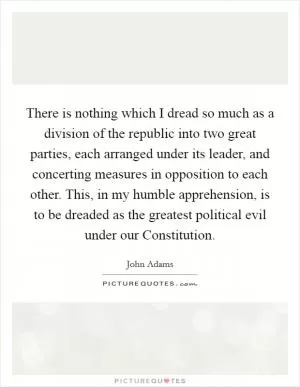Public virtue cannot exist in a nation without private, and public virtue is the only foundation of republics

Public virtue cannot exist in a nation without private, and public virtue is the only foundation of republics
John Adams, one of the founding fathers of the United States and the second President of the country, was a firm believer in the importance of public virtue in maintaining a successful republic. He famously stated, "Public virtue cannot exist in a nation without private, and public virtue is the only foundation of republics." This statement reflects Adams' belief that the moral character of individuals is essential for the well-being of a nation as a whole.Adams understood that a republic, a form of government in which power is held by the people and their elected representatives, relies on the virtue and integrity of its citizens. Without a strong sense of public virtue, individuals may act in their own self-interest rather than for the common good, leading to corruption, inequality, and ultimately the downfall of the republic.
In Adams' view, private virtue, or the moral character of individuals in their personal lives, is the foundation upon which public virtue is built. If citizens are honest, responsible, and ethical in their private affairs, they are more likely to act with integrity and selflessness in their public roles as well. This virtuous behavior is essential for the functioning of a republic, as it ensures that elected officials and government institutions serve the interests of the people rather than their own personal gain.
Adams' emphasis on public virtue as the cornerstone of republics is particularly relevant in today's political climate. In an era marked by partisan division, political corruption, and a lack of trust in government institutions, the need for virtuous leadership and civic engagement is more important than ever. Without a commitment to public virtue, the very foundations of democracy are at risk of crumbling.












 Friendship Quotes
Friendship Quotes Love Quotes
Love Quotes Life Quotes
Life Quotes Funny Quotes
Funny Quotes Motivational Quotes
Motivational Quotes Inspirational Quotes
Inspirational Quotes